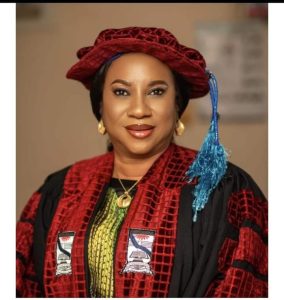Enugu High Court Sentences Federal Hospital Directors To Prison For Contempt
An Enugu State High Court has sentenced two directors of the Federal Neuropsychiatric Hospital, Enugu, to prison for contempt of court. The ruling was delivered by Justice Ngozi Orji on Monday, following contempt proceedings initiated by Dr. Afam Ndu, the suspended Principal of the School of Basic Mental Health Nursing at the hospital.
Dr. Ngozi Unaogu, the Acting Chief Medical Director of the hospital, and Dr. Ubochi, the Head of Clinical Services, were found to be in willful violation of a 2020 court judgment that ordered them to cease questioning Dr. Ndu’s qualifications. This decision has sparked further controversy and attention, as the parties involved have been at the center of a legal dispute that now extends to the higher courts.
The contempt proceedings stem from a 2020 judgment by Justice Ebele Mabel Egumbge of the Enugu State High Court. Dr. Afam Ndu had sued the management of the Federal Neuropsychiatric Hospital, Enugu, including Dr. Unaogu and Dr. Ubochi, after they allegedly questioned his qualifications and made defamatory claims that he was unqualified for his position. Dr. Ndu had been suspended from his role at the School of Basic Mental Health Nursing for allegedly lacking the necessary qualifications to hold the post.
In the original case, Dr. Ndu sought both compensation for damages and legal protection regarding his professional credentials. The court ruled in his favor, awarding him N2.5 million in damages and issuing a perpetual injunction that prevented the defendants from questioning his qualifications.
Despite this clear court order, Dr. Unaogu and Dr. Ubochi, under the direction of the Federal Ministry of Health, moved forward with a committee to investigate Dr. Ndu’s qualifications once again, in direct violation of the injunction. This led to Dr. Ndu’s decision to bring contempt proceedings against the hospital directors.
Justice Ngozi Orji, presiding over the contempt case, found that both Dr. Unaogu and Dr. Ubochi had knowingly violated the court’s order. Dr. Unaogu, as the Acting Medical Director, had set up a senior staff committee, which she chaired, to review Dr. Ndu’s National Youth Service Corps (NYSC) discharge certificate. This action was taken despite the court’s ruling prohibiting such scrutiny of Dr. Ndu’s qualifications.
In her ruling, Justice Orji noted that the actions of Dr. Unaogu and Dr. Ubochi were not only defiant but also disrespectful to the court’s authority. The judge further expressed that their behavior had caused unnecessary disruption and distress to Dr. Ndu, exacerbating the already contentious situation surrounding his professional reputation.
As a result, Justice Orji sentenced the two directors to prison, ordering that they be detained at the Enugu Correctional Service facility until they complied fully with the court’s order and ceased further actions that violated the judgment. The court’s decision was an unusual but firm response to the ongoing disregard for judicial authority by the hospital’s leadership.
The ruling has sparked a variety of reactions, with many questioning the implications for the healthcare sector, particularly the operations of federal hospitals. Dr. Unaogu and Dr. Ubochi’s legal representatives have expressed dismay at the court’s decision, arguing that the Federal Ministry of Health had directed their actions in accordance with a broader administrative inquiry into Dr. Ndu’s qualifications. They maintain that the defendants were simply following orders and did not intend to violate any court rulings.
However, the court remained steadfast in its decision, underlining the fact that no government directive could override a valid court judgment. This has raised broader questions about the relationship between the judiciary and government institutions, particularly in cases where court orders conflict with administrative policies.
Dr. Ndu’s legal battles are not confined to the contempt case alone. In addition to his fight for recognition of his qualifications, he had earlier filed separate suits concerning his professional registration. In one case, he sought an order compelling the Nursing and Midwifery Council of Nigeria (NMCN) to register him as both a general nurse and a nurse educator, despite claims from the NMCN that his qualifications were insufficient for such registration.
Ndu’s claims were rooted in his assertion that he had met all the academic and professional requirements to practice as a general nurse and educator, having obtained a Postgraduate Diploma (PGD) and Master’s degree in Education, which he argued were not properly recognized by the NMCN.
He also filed a separate lawsuit against Dr. Unaogu, Dr. Ubochi, and several other medical professionals at the Federal Neuropsychiatric Hospital for alleged libel. He accused them of falsely petitioning the Minister of Health, alleging that he lacked the qualifications necessary to serve as a nurse educator at the hospital’s School of Psychiatric and Mental Health Nursing.
Dr. Ndu’s legal actions have painted a picture of a protracted struggle for recognition and justice, both within his professional community and in the courts. His decision to pursue contempt proceedings against the hospital’s leadership reflects his commitment to ensuring that his rights and qualifications are respected, as well as his broader dissatisfaction with the handling of his case by the hospital authorities.
The sentencing of Dr. Unaogu and Dr. Ubochi has significant implications for the Federal Neuropsychiatric Hospital and the broader healthcare administration in Nigeria. As federal institutions, hospitals such as the one in Enugu are expected to adhere to legal orders and respect the rights of their employees and staff members. The contempt ruling highlights the importance of accountability and adherence to judicial decisions, especially within institutions that hold public trust and responsibility.
In the immediate term, the hospital’s leadership will likely undergo significant scrutiny from both government officials and the public. The imprisonment of two senior directors is an unusual occurrence in Nigeria’s health sector, where legal challenges are often handled more diplomatically. The case may lead to greater awareness of legal compliance issues within federal health institutions and prompt reforms aimed at improving the relationship between hospital management, government directives, and the judiciary.
For Dr. Ndu, the court’s ruling represents a significant victory in his long-standing battle for recognition and justice. The decision to imprison the hospital directors for contempt sends a strong message that court orders are not to be disregarded, regardless of the political or institutional pressure involved.
While the contempt case has reached a resolution with the imprisonment of the two directors, Dr. Ndu’s original case remains a subject of ongoing litigation. The Federal Neuropsychiatric Hospital and its directors have appealed the court’s decision, and the matter is now under review by the Court of Appeal in Enugu.
The appeal may have significant ramifications for the interpretation of professional qualifications in the Nigerian healthcare system. If the appellate court upholds the lower court’s judgment, it could set a precedent for similar cases involving the recognition of academic and professional qualifications in the healthcare sector. Conversely, if the appeal results in a reversal, it could undermine the principles of accountability and transparency in health sector governance.
For now, Dr. Ndu’s legal team remains optimistic that justice will prevail, particularly given the current favorable ruling in the contempt proceedings. The legal battle is far from over, but the events in Enugu serve as a potent reminder of the importance of upholding the rule of law, especially in matters concerning public institutions.
The sentencing of Dr. Ngozi Unaogu and Dr. Ubochi to prison for contempt marks a significant legal development in the ongoing saga surrounding Dr. Afam Ndu’s qualifications and professional standing. The ruling not only affirms the authority of the judiciary but also highlights the importance of adhering to court orders, especially when they relate to the rights and recognition of individuals in the public sector.
As the case progresses through the appellate courts, the implications for the Nigerian healthcare system and the broader public service sector will become clearer. For Dr. Ndu, the legal victory represents a hard-won affirmation of his professional rights, while for the Federal Neuropsychiatric Hospital, the case underscores the need for careful adherence to legal principles and institutional accountability.





